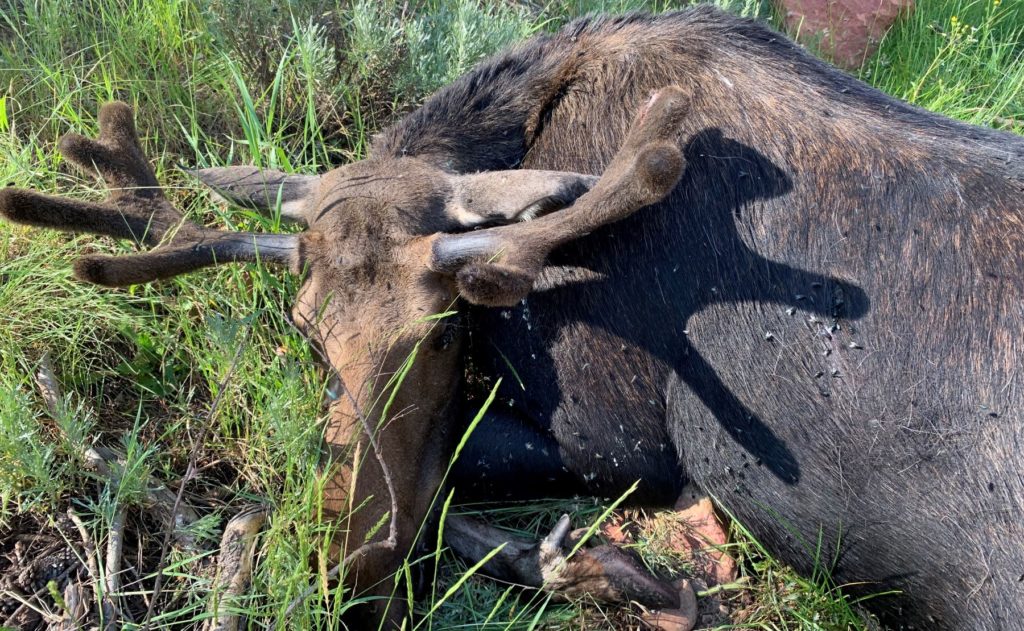A file photo of a moose killed illegally. Utah Division of Wildlife Resources was searching for information concerning the poaching incident in Rich County.
SALT LAKE CITY — Big Game poaching is a problem in the Beehive State. In 2020, a total of 1,056 big game animals were killed illegally state-wide. The total combined value of the wildlife illegally killed last year was more than $379,000, according to Mark Hadley, a Division of Wildlife Resources spokesman. In 2019, the total value was more than $406,500.

Utah places a high value on wildlife so, when convicted, poachers can face steep consequences.
Not only do those illegally killing wildlife pay fines and restitution, they may also be incarcerated and risk the confiscation of hunting equipment and the loss of hunting and fishing privileges in multiple states.
“Each animal that is illegally killed in our state is one less animal for legal hunters, wildlife enthusiasts and everyday citizens to enjoy,” DWR Capt. Wyatt Bubak said. “Poachers steal our ability to enjoy Utah’s wildlife.”
Residents are encouraged to report suspicious hunting activity. You can call the UTiP hotline — 1-800-662-DEER (3337) — which is staffed 24 hours a day, seven days a week, or report the activity online on the DWR website.
If you witness a possible violation, and you can’t remember the hotline number, do a quick internet search on your phone or look at your hunting or fishing license — the number is printed on it.
“We need your help,” he said. “Please keep your eyes and ears open and report suspicious activity to us. Working together, we can enforce wildlife laws and also keep those recreating outdoors safe.”
Hadley said they are taking swift action against perpetrators who kill wildlife out of season.
“While the total number of animals illegally taken dropped a bit in 2020, the total number of citations for unlawful take and wanton destruction actually increased, from 499 citations issued in 2019 to 773 citations in 2020,” he said. “The overall number of violations detected by DWR conservation officers last year (this includes citations for unlawful take and wanton destruction) was 4,760, compared to 3,525 violations in 2019.”
This year, a total of 35 people had their hunting or fishing privileges suspended in Utah compared to 84 in 2019. Utah is a member state of the Interstate Wildlife Violator Compact. License suspensions in Utah are recognized in all the other states in the U.S., except Hawaii.
When someone is convicted of illegally killing or possessing protected wildlife, they are often required to make restitution payments. The money is deposited in the Help Stop Poaching Fund, which pays rewards to hunters who help catch and convict poachers.
Not all wildlife violations are committed intentionally. To learn about common illegal hunting mistakes, visit the DWR website.

